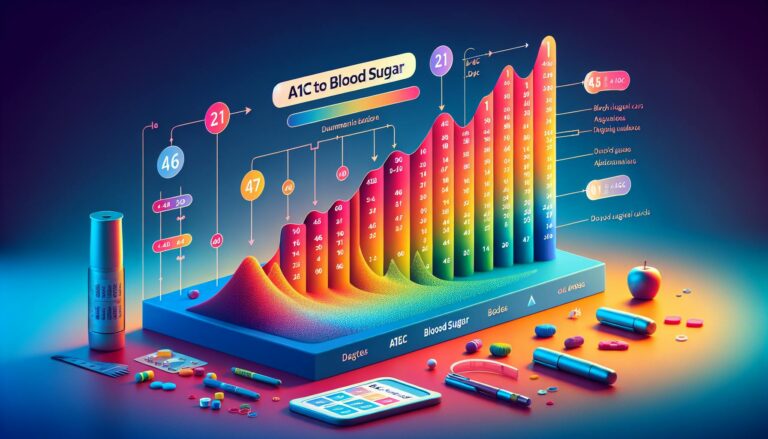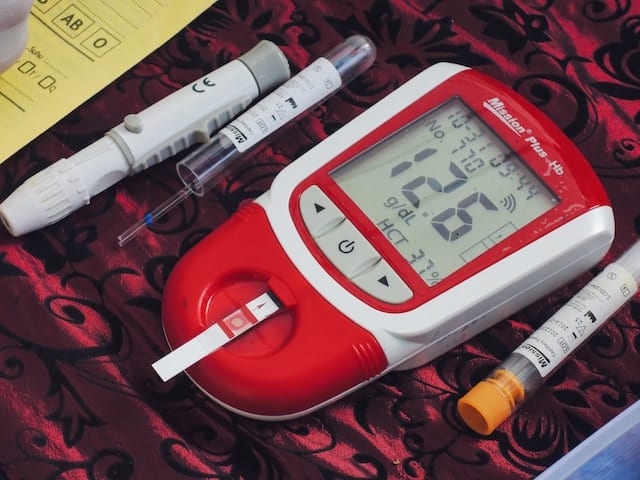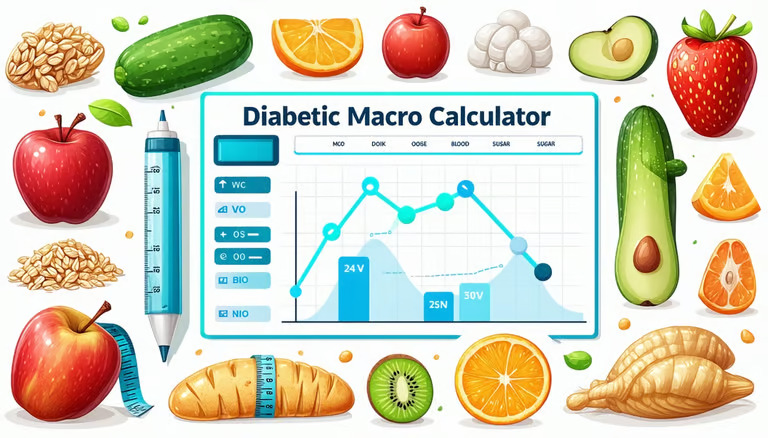A1C to Blood Glucose Conversion Guide
Ever wondered what your A1C numbers really mean? Trust me, you’re not alone. Many people, whether they have diabetes or are managing someone else’s, ask this question. Let’s break down the A1C to blood glucose conversion in a way that’s easy to understand and use.
Key Takeaways
- A1C gives you an average of your blood glucose over the past 2-3 months.
- Converting A1C to blood glucose helps you manage diabetes better daily.
- Use the A1C Calculator Tool for accurate conversions.
What is A1C?
Let’s get real. A1C is a blood test that measures your average blood glucose levels over the past two to three months.
Why two to three months? Because that’s the lifespan of red blood cells.
The more glucose in your blood, the more sticks to your red blood cells, leading to a higher A1C percentage.
Blood Glucose 101
Blood glucose, or blood sugar, is the sugar in your blood that gives energy to your body’s cells.
When you eat, your body breaks down carbohydrates into glucose, which then enters your bloodstream.
Normal vs. Diabetic Blood Glucose Levels
For those without diabetes, normal fasting blood glucose levels are between 70-100 mg/dL.
For those with diabetes, it’s crucial to keep blood glucose within a target range set by your healthcare provider.
Why Convert A1C to Blood Glucose?
Converting A1C to blood glucose makes sense of your A1C results in terms you see daily.
Here’s why it matters:
- Daily Management: Helps you understand your A1C in terms of daily blood sugar levels.
- Health Insights: Provides a clearer picture of your long-term blood glucose control.
- Better Communication: Makes discussing results with your healthcare provider easier.
The A1C to Blood Glucose Conversion Formula
Here’s where it gets interesting. To convert A1C to an estimated average glucose (eAG), use this formula:
eAG (mg/dL) = (28.7 x A1C) - 46.7
Example Calculation
If your A1C is 7%, the calculation would be:
eAG = (28.7 x 7) - 46.7 = 154 mg/dL
That means your average blood glucose level is about 154 mg/dL.
Tools and Calculators
Math not your thing? No worries. Use the A1C Calculator Tool at Diabetesknow.com to quickly convert your A1C to blood glucose. It’s accurate and user-friendly.
Conversion Charts and Tables
Here’s a handy chart to keep things simple:
| A1C (%) | Average Blood Glucose (mg/dL) |
|---|---|
| 5% | 97 |
| 6% | 126 |
| 7% | 154 |
| 8% | 183 |
| 9% | 212 |
| 10% | 240 |
| 11% | 269 |
| 12% | 298 |
Keep this conversion chart close by for quick reference.
Practical Applications
So, how do you use this in your daily life? Here’s how:
- Track Your Progress: Compare your daily readings with your A1C.
- Adjust Treatments: Make informed decisions about your diet and medications.
- Set Goals: Work with your healthcare provider to set realistic A1C targets.
Tools and Resources for Conversion
Need a bit of help? There are plenty of tools out there:
- Online Calculators: Sites like Diabetesknow.com offer free A1C conversion tools.
- Mobile Apps: Apps like MySugr and Glucose Buddy can track your A1C and blood glucose.
- Resources: Check out diabetes.org for more info.
FAQs
What is the normal range for A1C?
A normal A1C level is below 5.7%. For people with diabetes, the goal is usually less than 7%.
How often should A1C be tested?
It’s recommended to test your A1C every 3-6 months.
Can A1C levels be affected by other factors?
Yes, factors like hemoglobin variants, kidney disease, and anemia can affect A1C levels.
How accurate are A1C to blood glucose conversions?
They’re generally accurate but can vary slightly based on individual differences.
Are there any risks associated with A1C testing?
A1C testing is safe, with minimal risks involved, mainly just a standard blood draw.
Conclusion
Understanding how to convert A1C to blood glucose is a game-changer in diabetes management. Use the tools and tips here to keep your blood sugar in check and live a healthier life. And remember, the A1C Calculator Tool at Diabetesknow.com is your best friend in making these conversions quick and accurate.







